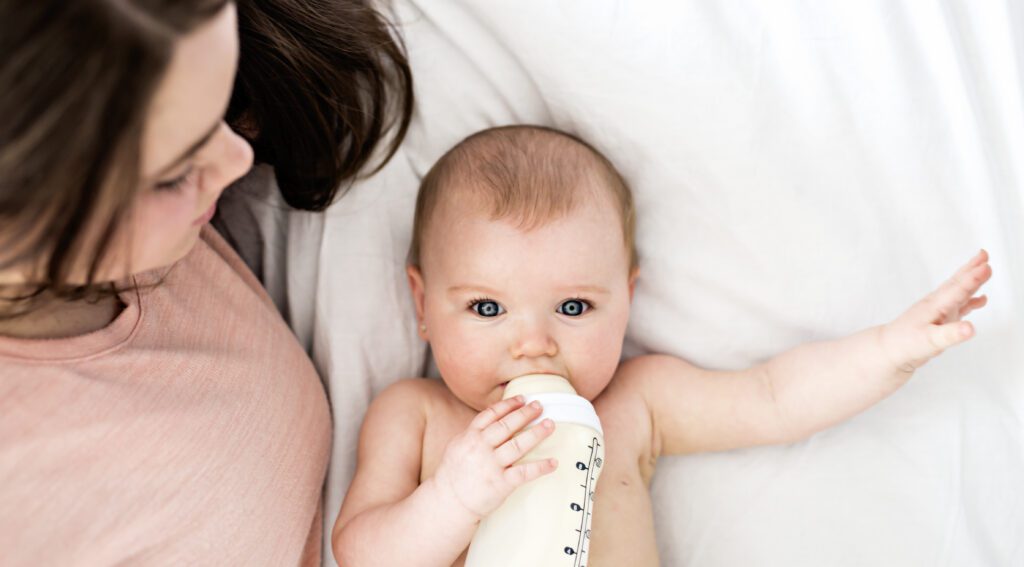Clinical trials show that 40% of babies medically diagnosed with colic suffer from “colic associated with lactose intolerance”. In these cases, the baby’s excessive crying and other colic symptoms are due to transient lactose intolerance, often caused by an immature digestive system. Reducing the levels of lactose in baby’s feeds, by choosing the right formula for colic babies, has been clinically proven to reduce the symptoms of colic in babies associated with lactose intolerance.
What is colic?
Colic is a condition that occurs in young babies who show significant periods of distress at predictable times of the day. In all other respects, the baby is well-fed and healthy, and no underlying cause has been found for the condition.
Colic is not a medical condition in itself, the term describes a set of symptoms. Paediatricians often use the “Rule of Three” to diagnose colic: “A baby that cries for three or more hours per day, at least three times a week, in the first three months of life.” About 25% of babies worldwide meet the official “Rule of Three” criteria for a medical diagnosis of colic.
Typical signs of colic associated with lactose intolerance in babies:
- Lactose intolerance in newborns shows signs of excess gas or flatulence.
- Another common symptom of colic is when the baby’s abdomen appears bloated and may seem hard.
- Crying for long periods despite there being no obvious cause and despite attempts to console the baby. Crying may escalate to high-pitched screaming.
- When crying, babies may show signs of stomach pain such as pulling their knees up to their chest, clenched fists, flailing arms and legs or an arched back.
- Baby experiences frequent sleeplessness, irritability or fussiness.
- Symptoms tend to occur around the same time each day, often in the afternoon or early evening and often after meal times.
- Colic typically occurs between a few weeks of age and 3-4 months old.








